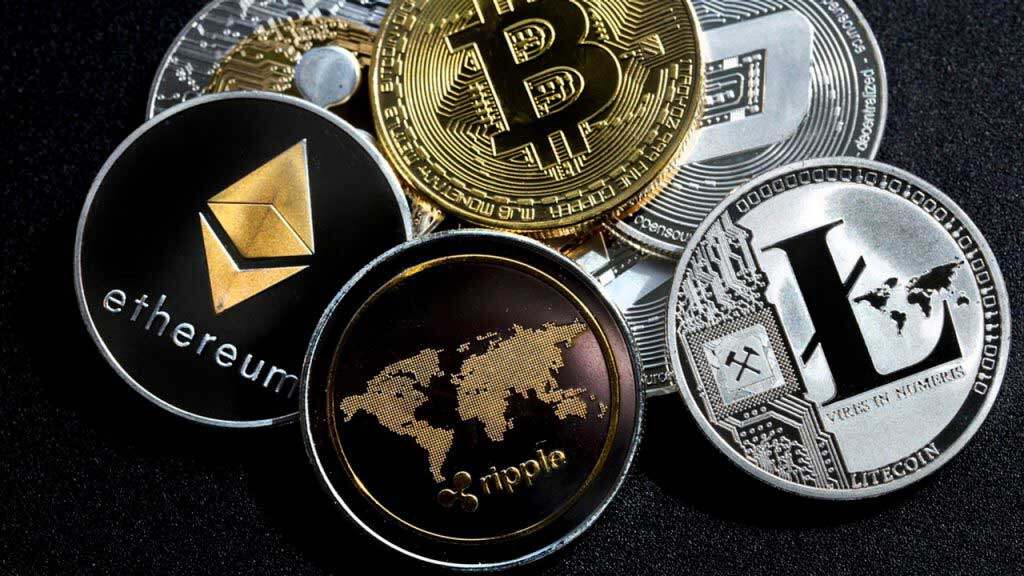Opinion: Almost all cryptocurrencies have declined significantly this year which doesn’t seem to be putting people off, but cryptocurrencies and cryptocurrencies are complicated. Take care out there, says Alex Sims.


Confusion and uncertainty swirls around cryptocurrencies and cryptocurrency exchanges, particularly after the spectacular demise of FTX, the cryptocurrency exchange that collapsed in November owing its creditors billions of dollars, and the arrest of its founder, Sam Bankman-Fried, who has now been charged with fraud.
It is not surprising there is confusion and uncertainty about cryptocurrencies and cryptocurrency exchange. They are complicated.
A cryptocurrency is a type of digital asset, some of which are designed to act as money, and they use blockchain technology or another form of distributed ledger technology enforced by a network of computers. CoinMarketCap, a website tracking the price and trading of cryptocurrencies, lists almost 9,000 cryptocurrencies.
A significant concern with cryptocurrencies is the lack of backing for most of them. Purchasing Bitcoin and most other cryptocurrencies is not the same as buying shares in a company that produces goods or services. A company receives income, but if something goes wrong, the company’s assets can be sold.
The value of cryptocurrencies depends on people believing they are valuable. While many people believe Bitcoin has a value and are willing to pay tens of thousands of dollars per Bitcoin, plenty of cryptocurrencies are worth virtually nothing: many are worth less than one cent each. This is because anyone can create a cryptocurrency.
JUST BECAUSE YOU CAN PURCHASE GOODS AND SERVICES WITH SOME CRYPTOCURRENCIES DOES NOT MAKE THOSE CRYPTOCURRENCIES MONEY AS SUCH. YOU CAN’T PAY YOUR TAXES IN BITCOIN OR PRESUME A MERCHANT WILL ACCEPT PAYMENT IN A CRYPTOCURRENCY.
To complicate matters, some cryptocurrencies, such as most stablecoins, are backed by bank deposits, gold, cryptocurrencies and other assets. Stablecoins, as their name suggests, are designed to remain stable in price.
They are useful for smart contracts, where, for example, payments are made automatically when pre-specified events occur, and the parties do not want to run the risk of price fluctuations of more conventional cryptocurrencies. For example, if the smart payment is made automatically when goods are delivered, the recipient wants to receive the expected amount.
Indeed, the perceived benefit of stablecoins combined with smart contracts is one reason why 90 percent of central banks around the world, including in New Zealand, are considering creating their own versions of stablecoins: central bank digital currencies.
While cryptocurrencies can be traded privately, the most common way of buying, trading and selling is through a cryptocurrency exchange.
Cryptocurrency exchanges vary according to four main features: whether they store funds for their customers, where they are based, how they are operated and whether they allow customers to purchase cryptocurrencies with fiat currency (a currency issued by a government or by entities approved by a government, such as a bank) and whether they will convert cryptocurrencies to fiat currency. Each cryptocurrency exchange combines different features.
The first main feature (whether the exchange stores fund) is split into cryptocurrency exchanges that store their customers’ funds (whether cryptocurrencies or fiat currency) and those that don’t. For cryptocurrency exchanges that do not hold the customers’ funds, customers must hold the cryptocurrencies themselves (self-custody), and there are a variety of methods for doing so, including using hardware wallets that customers have the only private key to. FTX did store its customers’ funds. Yet, self-custody can also be risky as many people have lost their cryptocurrencies because they have lost their private keys. There is no bank or other entity to recover your private keys from!
Second, the location of cryptocurrency exchanges is also important. There are cryptocurrency exchanges that operate in jurisdictions where they are regulated, normally audited and are likely to act prudently when it comes to their clients’ funds, such as Coinbase in the US. But some cryptocurrency exchanges are set up in jurisdictions where the regulatory requirements are not as strict, such as FTX, which operated out of the Bahamas.
Why would people choose a cryptocurrency such as FTX over an arguably safer cryptocurrency exchange such as Coinbase? Partly because FTX spent hundreds of millions of dollars on sports marketing and sponsorship, including a Super Bowl advertisement. Partly because FTX was, as an exchange platform, considerably cheaper to use than Coinbase.
Third, how and who operates cryptocurrencies is also important. There are centralised cryptocurrency exchanges (CEXs) which are a central entity, such as a company. FTX was a CEX, and Coinbase is too. But people can also use decentralised exchanges (DEXs) to trade cryptocurrencies. Unlike CEXs, DEXs do not use intermediaries. Instead people trade cryptocurrencies peer-to-peer through smart contracts, which are written in code. Users of DEXs must look after their cryptocurrencies using self-custody, for example through writing down the private key on a piece of paper and keeping it safe or using a hardware wallet.
DEXs appeal to users for two reasons, because transaction costs are normally considerably cheaper than CEXs. Moreover, DEXs are easily accessible, while CEXs limit who they offer their services to and people must go through stringent ID checks (anti-money laundering and other steps).
Almost all cryptocurrencies have declined significantly this year, indicating they are a risky investment. However, this doesn’t seem to be putting people off. One poll – though it was carried out by Easy Crypto, a New Zealand exchange – of 1000 New Zealanders found nearly one in five owned cryptocurrencies.
How can people protect themselves? New Zealand has a number of home-grown cryptocurrency exchanges and international cryptocurrency exchanges that have offices in New Zealand, which are registered in New Zealand on the Financial Services Provider Register. These cryptocurrency exchanges are members of dispute resolution schemes, which hear disputes for free. Caution and a bit of research is recommended. Don’t trust everything you read, including statements on a website claiming their exchange is registered in New Zealand. This is still an emerging virtual world. Take care out there.



































